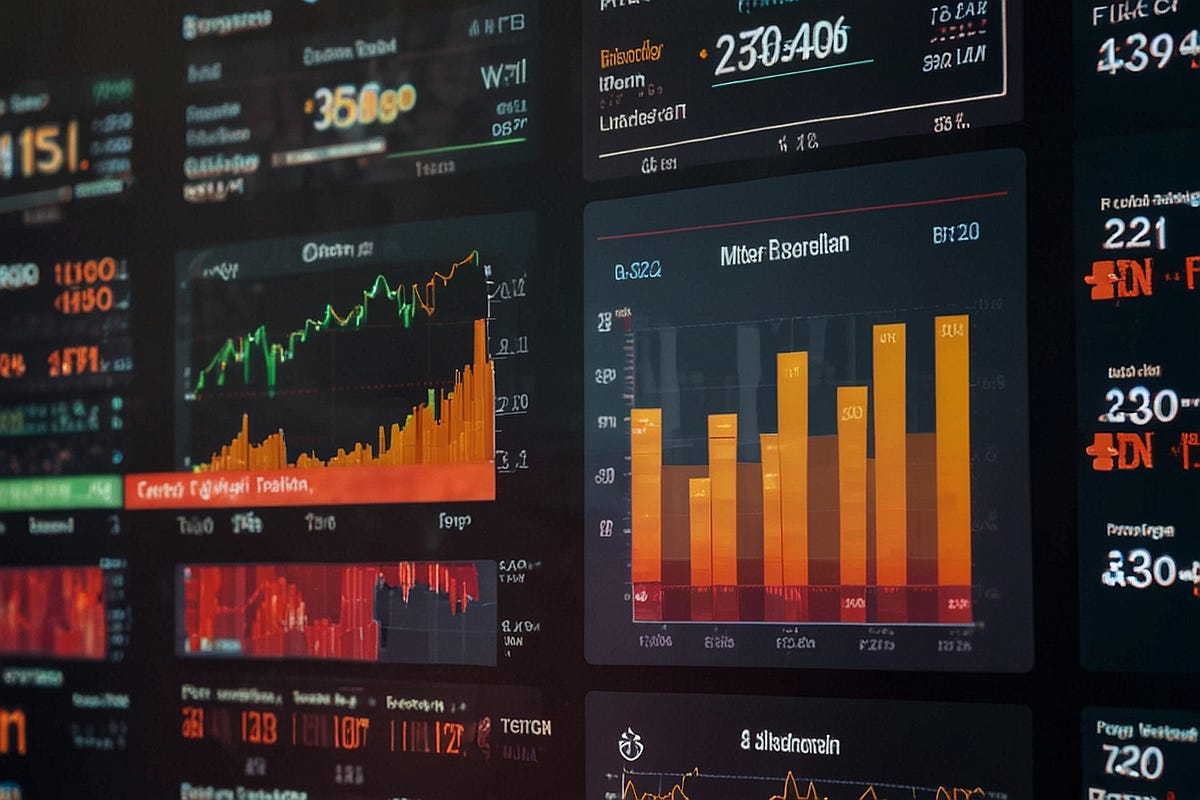The Fintechzoom.com DAX40 (Deutscher Aktienindex 40) is Germany’s primary stock market index, representing the 40 largest and most liquid companies listed on the Frankfurt Stock Exchange. It serves as a critical barometer of the German economy, influencing global financial markets. FintechZoom, a leading financial news platform, provides in-depth analysis, insights, and updates on the DAX 40, making it a go-to source for investors, traders, and financial professionals.
This article explores the DAX 40, its historical development, components, performance trends, and FintechZoom’s role in providing market intelligence.
The Evolution of the Fintechzoom.com DAX40
Origins and Early Development
The DAX was established in 1988 with a base value of 1,000 points, originally consisting of 30 companies. It was designed to offer a clear representation of the German economy, much like the Dow Jones Industrial Average (DJIA) in the U.S.
Germany, known for its industrial and manufacturing prowess, saw companies like Siemens, Volkswagen, and Deutsche Bank play a major role in shaping the index. Over the years, it became one of the most respected indices worldwide.
Expansion to 40 Companies
In September 2021, the DAX 30 was expanded to DAX 40, adding ten more companies to provide a more diversified representation of the German economy. The inclusion of firms from technology, healthcare, and renewable energy sectors strengthened the index, making it more reflective of Germany’s economic transition.
Composition and Key Sectors of the DAX 40
The DAX 40 encompasses companies from various industries, including:
- Automobile & Manufacturing: Volkswagen, BMW, Daimler Truck
- Technology & Software: SAP, Infineon Technologies
- Finance & Insurance: Deutsche Bank, Allianz, Commerzbank
- Healthcare & Pharmaceuticals: Bayer, Merck, BioNTech
- Consumer Goods & Retail: Adidas, Puma, Henkel
These companies are ranked based on free-float market capitalization and trading volume, ensuring that only the most significant German businesses are represented.
DAX 40 Performance Trends and Market Influence
Historical Performance
Since its launch, the DAX has experienced significant growth, reflecting Germany’s position as Europe’s economic powerhouse. Some notable milestones include:
- 1990s: Rapid growth following German reunification
- 2008-2009: A sharp decline during the Global Financial Crisis, followed by a strong recovery
- 2020: The impact of the COVID-19 pandemic, causing a temporary drop before rebounding
- 2021-present: Expansion to 40 companies and increased global investor interest
Market Volatility and Economic Factors
Several external and internal factors influence the DAX 40’s movements:
- European Central Bank (ECB) Policies: Interest rate decisions impact German stocks
- Macroeconomic Indicators: GDP growth, inflation, and employment rates affect investor sentiment
- Global Events: U.S. Federal Reserve decisions, geopolitical tensions, and energy prices contribute to fluctuations
- Sector-Specific Trends: The rise of electric vehicles (EVs) has influenced automakers like Volkswagen and BMW
FintechZoom’s Role in Covering the DAX 40
Comprehensive Market Analysis
FintechZoom provides real-time updates, expert opinions, and deep financial analysis related to the DAX 40. It covers topics such as:
- Daily Market Trends: Opening and closing prices, major gainers and losers
- Company Performance: Earnings reports, stock valuations, and growth projections
- Macroeconomic Impact: How government policies and international trade affect DAX-listed companies
- Technical and Fundamental Analysis: Chart patterns, investor sentiment, and long-term trends
Investor Insights and Trading Strategies
For traders and investors, FintechZoom serves as a trusted source for:
- Short-term Trading Strategies: Identifying bullish or bearish signals in the DAX 40
- Long-term Investment Advice: Portfolio diversification recommendations based on index performance
- Sectoral Trends: Guidance on high-growth industries such as green energy and AI-driven technology
Key Fintechzoom.com DAX40 Stocks to Watch
SAP SE (SAP)
As Germany’s leading software company, SAP is a major player in cloud computing and enterprise solutions. Its strong market position makes it one of the most influential stocks in the DAX 40.
Volkswagen Group (VWAGY)
A dominant force in the automotive sector, Volkswagen’s shift to electric vehicles (EVs) has positioned it as a global leader in sustainability and innovation.
Allianz SE (ALV)
One of the world’s largest insurance companies, Allianz has remained resilient through economic downturns, making it a stable DAX 40 component.
Siemens AG (SIEGY)
As a global leader in industrial automation, Siemens continues to expand into smart infrastructure and digitalization.
Future Outlook: What Lies Ahead for the DAX 40?
Economic Recovery and Growth Projections
Post-pandemic recovery efforts, green energy policies, and digital transformation will likely drive growth in the DAX 40. The European Union’s commitment to carbon neutrality by 2050 presents opportunities for German companies in renewable energy and sustainable industries.
Rising Interest Rates and Inflation
Inflationary pressures and ECB rate hikes could introduce volatility, impacting stock valuations. Investors will closely monitor how companies manage costs and supply chain disruptions.
The Tech Revolution and Market Disruptors
With Germany’s increasing investment in AI, robotics, and cybersecurity, technology stocks within the DAX 40 may see accelerated growth. SAP, Infineon, and Siemens are expected to benefit from these advancements.
Conclusion
The DAX 40 remains a cornerstone of European financial markets, offering valuable insights into Germany’s economic strength. Through its detailed coverage, FintechZoom provides investors with timely news, in-depth analyses, and expert opinions on DAX 40 stocks, helping them make informed decisions.



